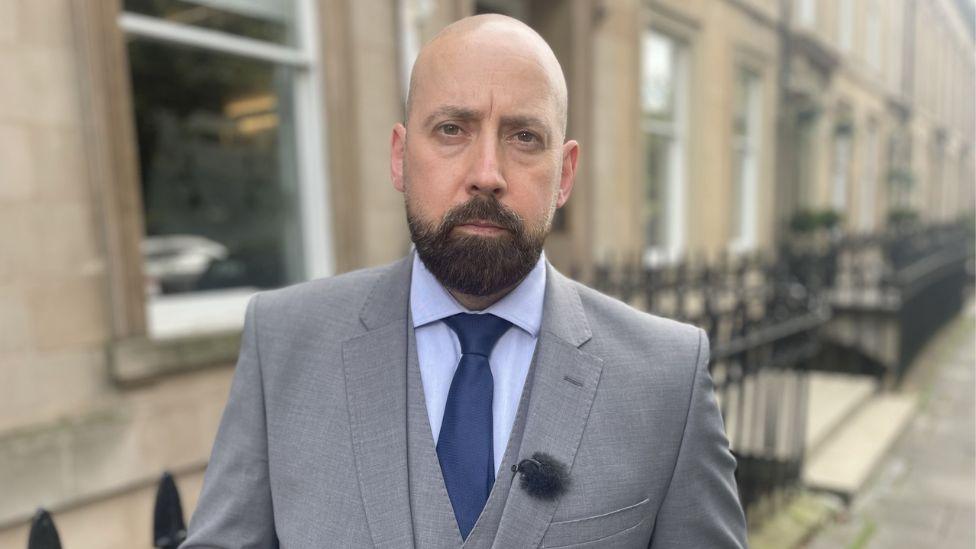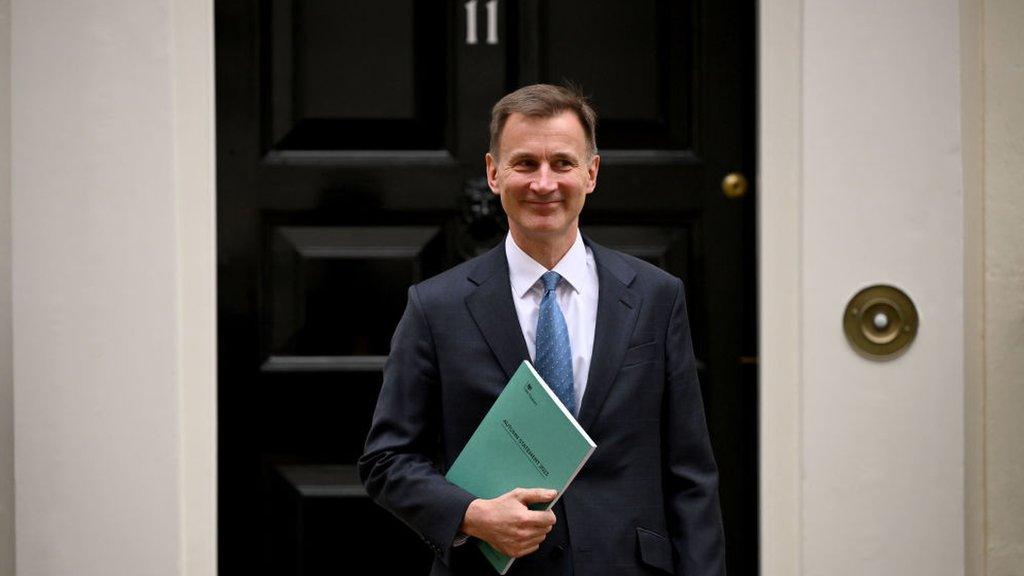Public sector workforce will have to shrink - Shona Robison
- Published
- comments
Shona Robison said staffing for Scotland's public services would have to be reduced
Scotland's public sector workforce will have to shrink due to funding pressure, the finance secretary has said.
Shona Robison said there was "no doubt" that staffing for services would have to be reduced due to tight budgets and inflation-driven pay deals.
But she said areas like health would be protected and ministers wanted to avoid compulsory redundancies.
Ms Robison is expected to give more detail of reforms to services in next month's Scottish budget.
Speaking on the BBC's The Sunday Show, Ms Robison said the chancellor's Autumn Statement had put more pressure on her spending plans.
While welcoming some elements of Jeremy Hunt's announcements, she said that overall they were at the expense of public services.
"This will be one of the most difficult budgets under devolution and we will be having a number of challenges around how to make sure we can invest what we can in public services," she said.
"But I need to be honest with the public that this budget, this UK Tory budget and the chancellor's decisions have made my job very difficult. This is the worst case scenario for the Scottish budget."
New ways of working
The Scottish government will receive an extra £545m of funds through so-called "Barnet consequentials" as a result of the chancellor's announcements.
Ms Robison said much of that would be swallowed up by increased pay for NHS staff, and the funding would not follow through to the next financial year.
She said the size of the public sector workforce would have to be reduced and new ways of working would have to be found.
"The way public bodies work together, the way they deliver services will have to change - the size of the workforce will have to reduce," she said.
Ms Robison said the government wanted to avoid compulsory redundancies, but she stressed there was a "relationship between head count and pay".
She suggested that digital technology and more people working from home meant there may be a case for disposing of public sector buildings.

Police federation chief David Kennedy says Police Scotland "cannot afford" further cuts
Police Scotland is among the services that could potentially be at risk if the public sector workforce is to be reduced.
David Kennedy, general secretary of the Scottish Police Federation, said the force "cannot afford to have any more cuts".
He predicted there would be fewer than 16,000 officers by April, down from about 17,500 when Police Scotland was set up in 2013 .
"They should not be attacking the emergency services," Mr Kennedy told BBC Radio's Good Morning Scotland. "We are the heart of Scotland.
He added: "The government have to do better as far as I'm concerned."
Unison, which is representing council staff in a long-running pay dispute with Cosla, urged the government not to cut jobs.
Lilian Macer, the union's Scottish secretary, said: "It is absolutely unbelievable that the Scottish government are looking at job cuts in a position where we have right now in our public services where most of them are currently in crisis."
'Blame game'
The Scottish Conservatives accused the SNP of playing a "blame game" and failing to commit to passing on support for businesses.
The party's finance spokeswoman Liz Smith said: "Shona Robison and the rest of the SNP government need to take responsibility for their own decisions - their economic mismanagement has created a £1bn black hole in Scotland's finances.
"If there is any further widening of the tax gap between us and the UK there is a real risk of harming our economic growth here in Scotland - the SNP must pass on support to businesses who will rightfully be frustrated by her refusal to answer."
Related topics
- Published23 November 2023
- Published22 November 2023
